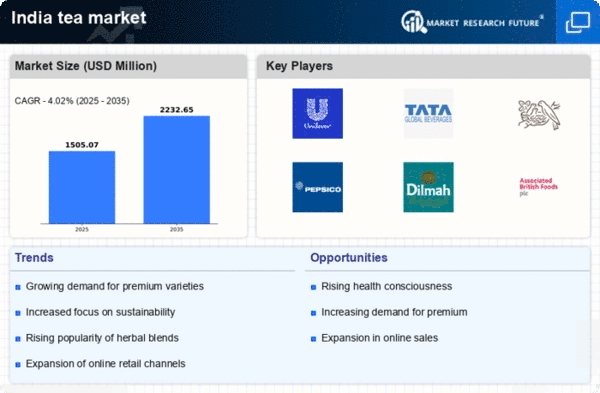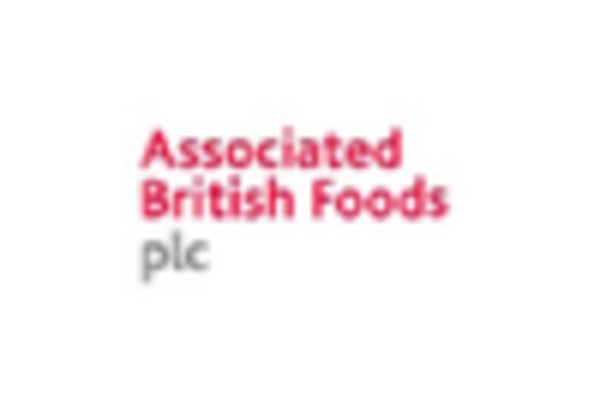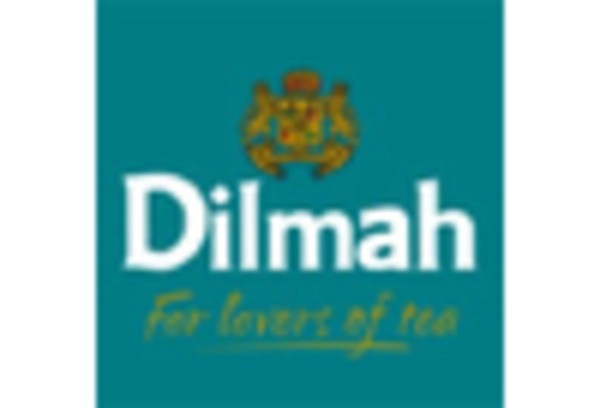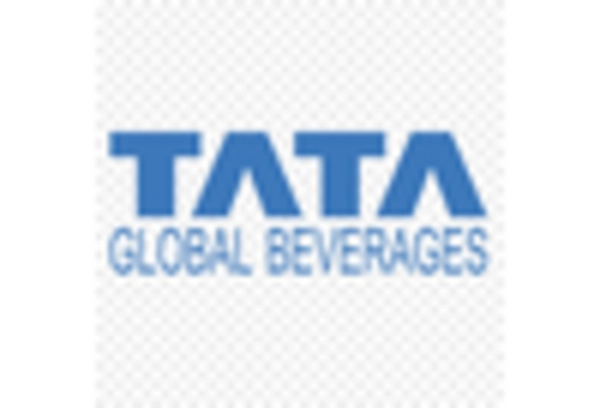Innovative Packaging Solutions
In the tea market, innovative packaging solutions are becoming a critical driver of growth. Companies are increasingly adopting eco-friendly and convenient packaging formats to attract environmentally conscious consumers. For instance, biodegradable tea bags and reusable containers are gaining popularity. This shift not only caters to consumer preferences but also aligns with sustainability goals. Market data suggests that brands utilizing innovative packaging can see a sales increase of up to 15% compared to traditional packaging methods. As competition intensifies, the emphasis on packaging innovation is likely to play a pivotal role in shaping the future of the tea market.
Rising Demand for Premium Teas
The tea market in India is experiencing a notable shift towards premium and specialty teas. Consumers are increasingly seeking high-quality products, which has led to a surge in demand for organic and artisanal varieties. This trend is reflected in the market data, indicating that the premium segment is projected to grow at a CAGR of approximately 10% over the next five years. The growing awareness of health benefits associated with premium teas, such as antioxidants and lower caffeine levels, further fuels this demand. As a result, producers are focusing on enhancing the quality and sourcing of their tea leaves, thereby impacting the overall dynamics of the tea market.
Health-Conscious Consumer Trends
Health-conscious consumer trends are reshaping the tea market in India. With an increasing focus on wellness, consumers are gravitating towards herbal and functional teas that offer specific health benefits. This shift is supported by market data indicating that herbal tea sales have risen by 25% in the past year alone. The demand for teas that promote relaxation, digestion, and immunity is on the rise, prompting brands to innovate and diversify their product lines. As health awareness continues to grow, the tea market is likely to see a sustained increase in the popularity of health-oriented tea products.
Expansion of Distribution Channels
The expansion of distribution channels is significantly influencing the tea market in India. Traditional retail outlets are being complemented by modern trade formats, including supermarkets and hypermarkets, which provide greater accessibility to consumers. Additionally, the rise of online platforms has transformed purchasing behaviors, with e-commerce sales of tea expected to grow by 20% annually. This diversification in distribution not only enhances consumer reach but also allows brands to cater to a wider audience. Consequently, the strategic development of distribution channels is essential for companies aiming to thrive in the competitive landscape of the tea market.
Cultural Significance and Consumption Patterns
The cultural significance of tea in India continues to be a driving force in the tea market. Tea is deeply embedded in social rituals and daily routines, leading to consistent consumption patterns across various demographics. Recent surveys indicate that approximately 70% of Indian households consume tea daily, with preferences varying by region. This cultural affinity for tea encourages brands to tailor their offerings to local tastes and preferences, thereby enhancing customer loyalty. As a result, understanding and leveraging cultural nuances is crucial for companies looking to succeed in the diverse landscape of the tea market.
















